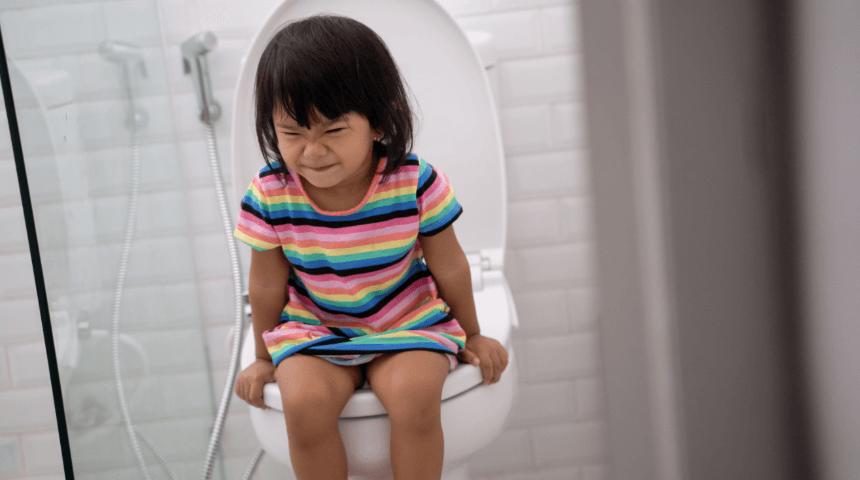I was sitting at the park this week with a group of moms, and we chatted (like moms do) as our kids chased each other around the playground. I can’t remember exactly how the topic came up, but before I knew it we were discussing what names our children call their private parts. Inevitably, funny stories were exchanged about things our kids have done or said, and before long I was laughing so hard I couldn’t breathe. I won’t tell you the names for private parts that were discussed, but just know that there were a few animals, a few misidentified parts and some words I’d never heard in my life.
Later that night as I thought back on the conversation, though, I realized I wasn’t quite sure what my daughter would call her private parts. For boys, it’s often a different story since the opportunity (or necessity, rather) to discuss boys’ private parts presents itself more readily. If you have boys, you know what I mean; if you don’t, enjoy your ignorance. For girls, though, it seems many of us avoid the conversation while they’re young due to fear of our kids embarrassing us in public with their newfound vocabulary or because we just don’t know what to say. Then, before we know it we look at them and realize they’ve grown up, and we should have had the conversation long ago.
Consider the importance of the conversation
There are lots of reasons for parents to shy away from conversations about private body parts. It’s awkward and uncomfortable even for us as adults. And when we aren’t sure what to say or when and how to say it, it’s easy to put off the conversation.
 There are, however, some very important reasons not to hesitate to have the conversation.
There are, however, some very important reasons not to hesitate to have the conversation.
- Your kids will learn about private parts and eventually sex, and much earlier than you’d expect. It’s better that they learn correct information from you instead of their friends, movies or television shows.
- Children learn and follow the unspoken rules of your home. If you’ve taught them they cannot speak about the private areas of their bodies, they may interpret this as there being something shameful about it. They will not feel free to ask you questions, share with you concerns or problems related to their body or feel comfortable letting you know if someone has behaved inappropriately regarding theirs or others’ private parts.
- As children grow, they will need to know not only the names of their private parts, but the boundaries that they and others must respect with regards to those parts. If you’ve never talked about private parts in your family, you won’t be able to communicate those boundaries. Studies have shown that children who know the proper names for their genitalia are less likely to suffer sexual abuse. We don’t know exactly why that is the case, but it is perhaps that parents who have communicated the names of the genitalia also have protected their children against victimization in the process.
- Your kids need to know that you are trustworthy and capable of answering any question or addressing any problem they may have. As I tell my kids, trust is earned. Being willing to have even the awkward, uncomfortable conversations lets your kids know that you’re there, you’re willing to share openly and honestly, and there is nothing they can’t discuss with you.
So, how do you go about having the conversation? Well, after that chat with the other moms at the park, I took the plunge. It was very easy, and I’m so glad I did it. Here are some principles for an effective conversation that will help as you, too, dive in:
Take advantage of the teachable moments
Child development experts say that you should begin talking to your kids about private parts in an age-appropriate way during the toddler years. It is normal for kids around three years of age to start asking questions about their body parts, so when it happens use this opportunity to teach them the names. Bath time and getting dressed present a daily opportunity, so use it. If someone you know is having a baby, and your child asks how the baby is going to come out, tell them in an age-appropriate way. If you have made it a safe place for kids to ask questions and satisfy their curiosity, they will ask.
Take your cues from your kids. For example, my older two asked me when they were little how babies came out and I answered, “They come out of the mommy’s private areas.” And then I waited to see what questions came next. Sometimes I’ll even ask, “What questions do you have about that?” Kids don’t ask questions they’re not developmentally ready to hear the answers to, so you wait for the question to see where they are in their understanding. Sometimes, they won’t ask any questions at the time, but they’ll come back later on and follow up.
Get real
 It may feel awkward, but it is okay to teach your child the words penis and vagina. Some parents will balk at that suggestion, and I, too, felt strange about teaching my kids those words at a young age. Instead we taught them they were “private areas” and gave them the more technical terms later on. We didn’t have cute nicknames or code words for them, which sort of forces you to have a more honest conversation. You’ll have to decide what’s right for your situation. The important thing, though, is that as they grow they are taught the actual names for their genitalia and that they know there is no shame in naming or speaking of their genitals when done in the appropriate context.
It may feel awkward, but it is okay to teach your child the words penis and vagina. Some parents will balk at that suggestion, and I, too, felt strange about teaching my kids those words at a young age. Instead we taught them they were “private areas” and gave them the more technical terms later on. We didn’t have cute nicknames or code words for them, which sort of forces you to have a more honest conversation. You’ll have to decide what’s right for your situation. The important thing, though, is that as they grow they are taught the actual names for their genitalia and that they know there is no shame in naming or speaking of their genitals when done in the appropriate context.
Always be honest
Here’s my rule: if a kid asks the question, they always get an honest answer. There is only one exception to this rule, and that involves Santa Claus and the Easter Bunny (and believe me I harbor a lot of guilt about this deception). Keep in mind that speaking honestly doesn’t mean you have to spill the whole bag of secrets all at once. You can share openly about the names of the genitalia without divulging the details about how babies are made. As kids age, you continue to revisit the conversation, telling them more and more in an age-appropriate way. You as the parent should initiate the conversation, speak openly, honestly and factually, and then open the door for questions from your child.
Talk about boundaries
It’s important that when you speak to your child about their private parts that you emphasize they are private. They must understand as they get older that their body belongs to them, and other people do not have the right to see or touch their private parts. This doesn’t mean there should be shame surrounding their bodies, just that there are boundaries. When my kids are little, I say that only Mommy, Daddy and sometimes their pediatrician should see or touch their privates when we are caring for them. And then as they grow, even those provisions become rare as the child really assumes full ownership over their body.
Little boys are often enamored with their genitals (again, if you have boys, you know what I mean), and rather than scolding them for this very natural inclination I simply explain that it’s okay to do that but it must be done in private. Make the distinction also that it’s okay for kids to talk about private parts, but it must be done appropriately. Tell them, “If you want/need to talk about private parts, talk to Mommy or Daddy privately or within our house but not in public.”
It’s not only important to explain to kids that their parts are private, but that others’ parts are private as well. We respect others by allowing them to keep their parts private. While curiosity is natural, a child’s questions should be answered by parents, not peers. This is the beginning of a bigger conversation that should happen over time about respecting others’ bodies and rights that is particularly important for boys.
Keep the door open for further conversation
 If you begin the dialogue when your children are young and speak with them openly and honestly about the more difficult things in life, you have paved the way for an ongoing conversation throughout their childhood and adolescence. They will know that you are the source for honest and accurate information, so they will bring their questions to you as they arise.
If you begin the dialogue when your children are young and speak with them openly and honestly about the more difficult things in life, you have paved the way for an ongoing conversation throughout their childhood and adolescence. They will know that you are the source for honest and accurate information, so they will bring their questions to you as they arise.
Once that door is opened, then when you hear something said on TV or a comment by another kid prompts it, you can revisit the conversation and build upon it based on their age and understanding.
Don’t fear these milestone moments, but face them with confidence. I promise, it really isn’t that bad.










